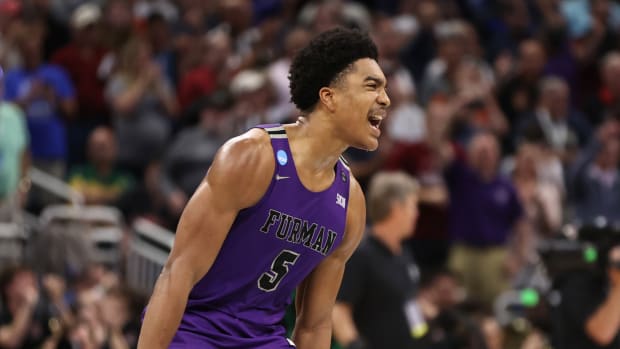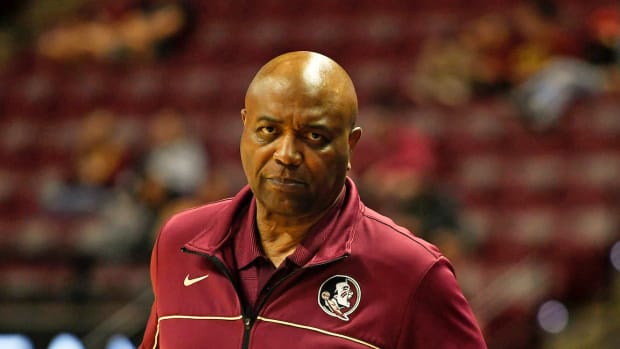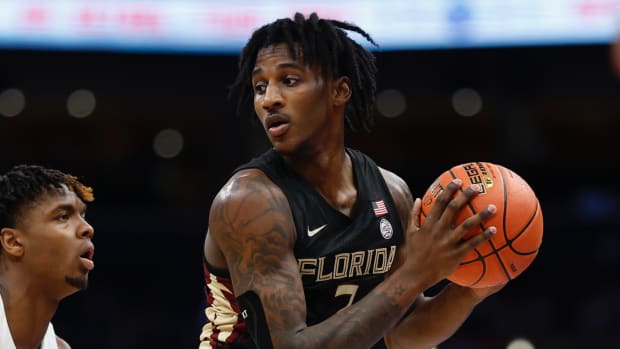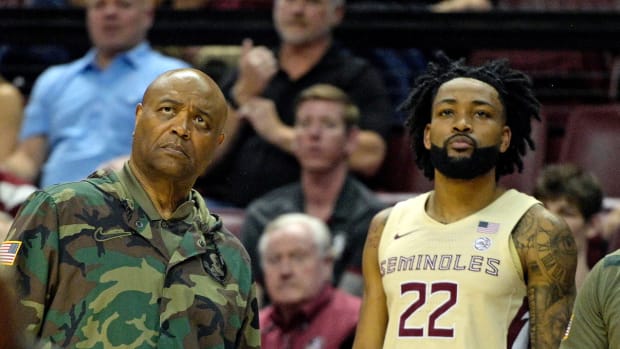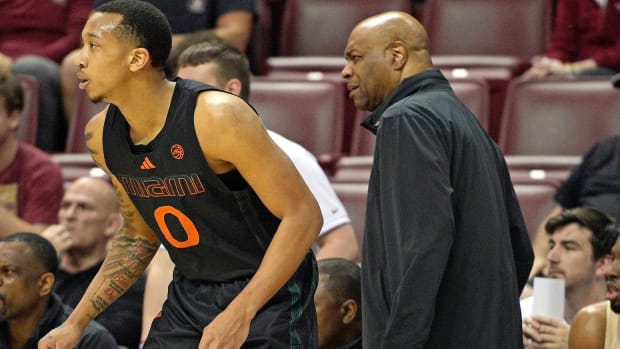NCAA Takes Steps Toward Approving Compensation to Student Athletes for Name, Image, Likeness: Reaction
Wednesday morning provided a banner moment for collegiate athletics and the entire notion of amateurism in the United States, as the NCAA Board of Governors announced that it's heading in the direction of allowing student athletes to earn compensation for the use of what's known as NIL: name, image, and likeness.
The change would go into effect in 2021, but let's breakdown just what that whole NIL thing means.
Name
A player could profit from her/his autograph, their own appellation that s/he had been primarily responsible for making valuable in the first place.
Image
An athlete could shop out his image, say, for billboards around town or in other advertisements. However, the player could not wear school-branded apparel in these endorsement deals.
Likeness
This one's for you, gamers. Players could approve and be compensated for the use of their likenesses-- say in a video game, like the popular College Football franchise, the production of which was halted due to the very NCAA rules that now appear to be changing. That game would almost certainly see a return in 2021.
Student athletes would be required to divulge to their respective universities the details of these endorsement deals, and a failure to do so could result in compromised eligibility. How would athletes find these deals? They'd be allowed to hire agents-- but forbidden from using those agents to contact professional franchises.
Endorsement deals could come from program boosters, with the exception being that boosters could not offer deals to recruits to influence their choices as a prospect prior to signing.
Reaction
Fans are all over the map on the spirit of these rule changes. Some maintain that student are already compensated sufficiently, via their scholarships, room and board, meals, clothing, transportation, and travel accommodations. Others cite collegiate athletics as a billion-dollar industry, and that those working hardest to provide the on-field product, those forced to forego professional paychecks for varying periods of time in favor of compulsory amateurism, deserve a piece of the pie they help create.
Your ideology is your own here, but I do think it'll be interesting to see how all of this is executed-- and enforced. Whatever you think the rules should be, they have to be level across the board, and they've got to be applicable.
The booster part is tricky, as it seems like an easily circumventable obstacle to filtering money to prospects. Maybe a five-star running back would get paid anywhere, but a program with deeper booster support would be more likely to be able to also pay that backup left tackle who provides depth until it's his turn to start. Recruits will come to know which schools are which very quickly. But let's be honest: they already do.
Because it's not like that issue hasn't always existed-- could these new rules provide increased transparency? Perhaps. But a certain part of college sports will likely always remain shrouded in the shadows, regardless of tweaks to the rules.

